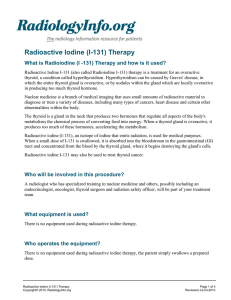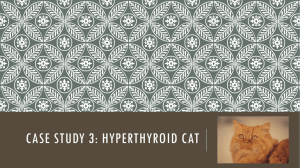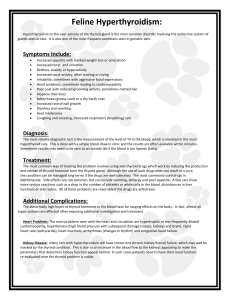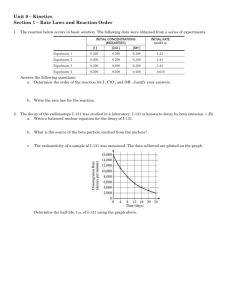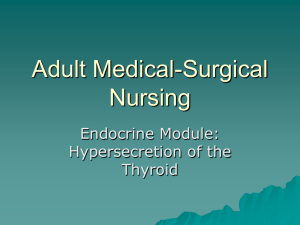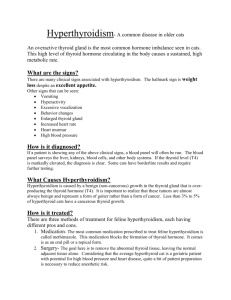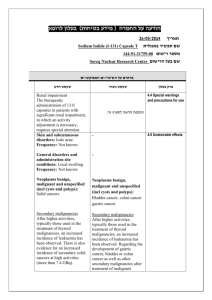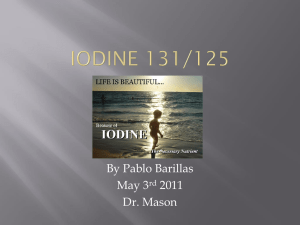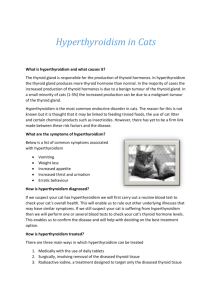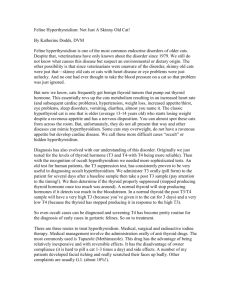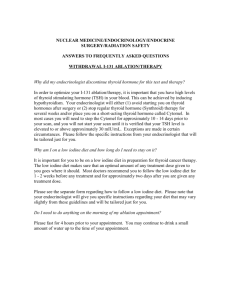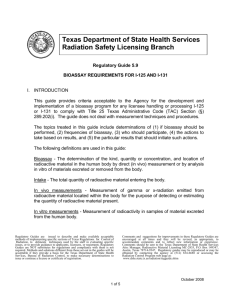Hyperthyroidism therapy - NYU Langone Medical Center
advertisement
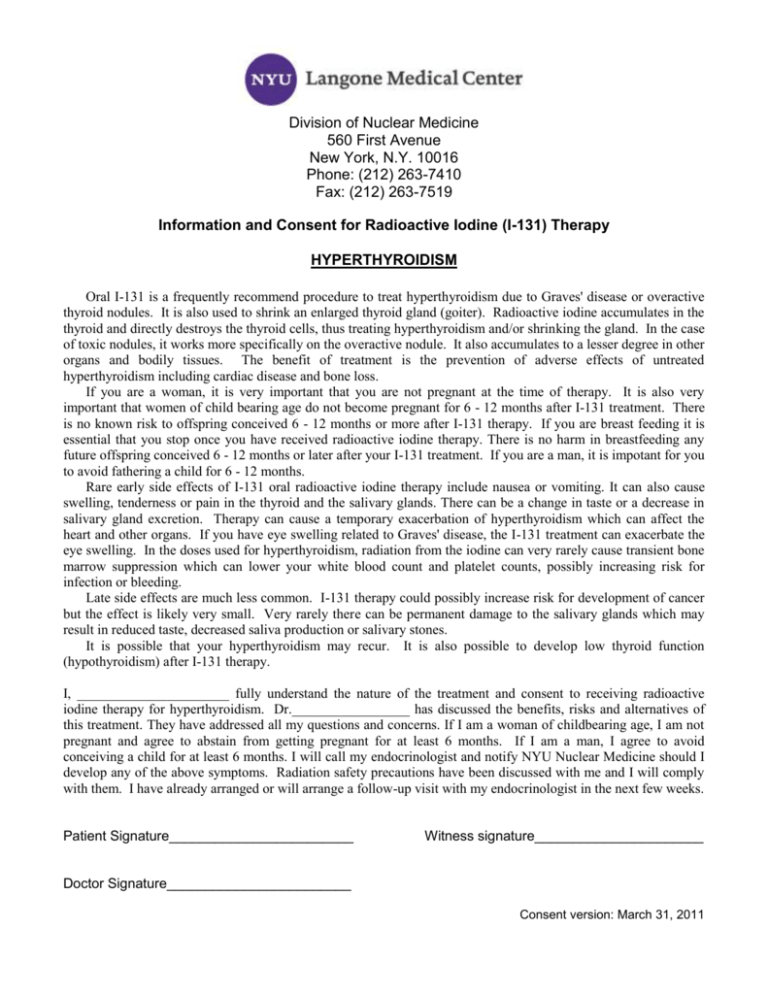
Division of Nuclear Medicine 560 First Avenue New York, N.Y. 10016 Phone: (212) 263-7410 Fax: (212) 263-7519 Information and Consent for Radioactive Iodine (I-131) Therapy HYPERTHYROIDISM Oral I-131 is a frequently recommend procedure to treat hyperthyroidism due to Graves' disease or overactive thyroid nodules. It is also used to shrink an enlarged thyroid gland (goiter). Radioactive iodine accumulates in the thyroid and directly destroys the thyroid cells, thus treating hyperthyroidism and/or shrinking the gland. In the case of toxic nodules, it works more specifically on the overactive nodule. It also accumulates to a lesser degree in other organs and bodily tissues. The benefit of treatment is the prevention of adverse effects of untreated hyperthyroidism including cardiac disease and bone loss. If you are a woman, it is very important that you are not pregnant at the time of therapy. It is also very important that women of child bearing age do not become pregnant for 6 - 12 months after I-131 treatment. There is no known risk to offspring conceived 6 - 12 months or more after I-131 therapy. If you are breast feeding it is essential that you stop once you have received radioactive iodine therapy. There is no harm in breastfeeding any future offspring conceived 6 - 12 months or later after your I-131 treatment. If you are a man, it is impotant for you to avoid fathering a child for 6 - 12 months. Rare early side effects of I-131 oral radioactive iodine therapy include nausea or vomiting. It can also cause swelling, tenderness or pain in the thyroid and the salivary glands. There can be a change in taste or a decrease in salivary gland excretion. Therapy can cause a temporary exacerbation of hyperthyroidism which can affect the heart and other organs. If you have eye swelling related to Graves' disease, the I-131 treatment can exacerbate the eye swelling. In the doses used for hyperthyroidism, radiation from the iodine can very rarely cause transient bone marrow suppression which can lower your white blood count and platelet counts, possibly increasing risk for infection or bleeding. Late side effects are much less common. I-131 therapy could possibly increase risk for development of cancer but the effect is likely very small. Very rarely there can be permanent damage to the salivary glands which may result in reduced taste, decreased saliva production or salivary stones. It is possible that your hyperthyroidism may recur. It is also possible to develop low thyroid function (hypothyroidism) after I-131 therapy. I, ______________________ fully understand the nature of the treatment and consent to receiving radioactive iodine therapy for hyperthyroidism. Dr._________________ has discussed the benefits, risks and alternatives of this treatment. They have addressed all my questions and concerns. If I am a woman of childbearing age, I am not pregnant and agree to abstain from getting pregnant for at least 6 months. If I am a man, I agree to avoid conceiving a child for at least 6 months. I will call my endocrinologist and notify NYU Nuclear Medicine should I develop any of the above symptoms. Radiation safety precautions have been discussed with me and I will comply with them. I have already arranged or will arrange a follow-up visit with my endocrinologist in the next few weeks. Patient Signature________________________ Witness signature______________________ Doctor Signature________________________ Consent version: March 31, 2011
